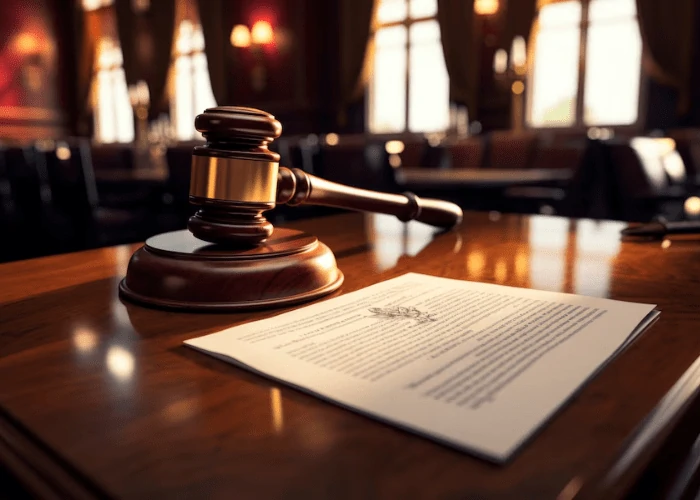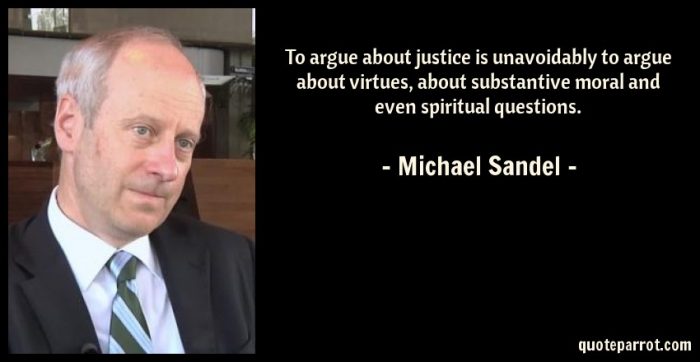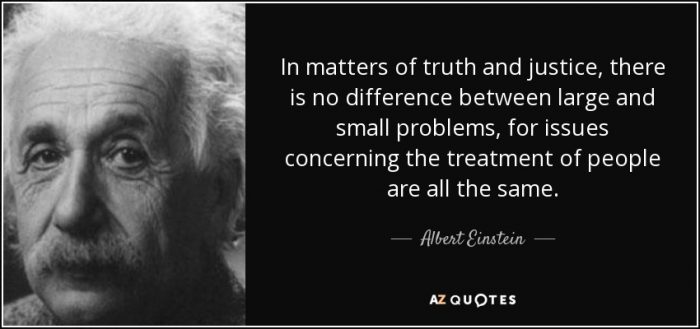
Page Description
A fair procedure ensures impartiality and justice in decision-making processes,
providing equal opportunities
for all parties involved.

A common law rule (sometimes called due process)
requiring a procedurally fair hearing and an unbiased decision in government and some private decision-making.
1 The very nature of binding justice
Injustice is, above all, defined by its impact.
It marks a deciding moment for the rest of your life.
It is the worst experience a person can endure.
Only in that moment can you truly grasp what is happening.
Injustice is a feeling that’s impossible to put into words.
There must be balance in decision-making – a fair process – to avoid mistakes.
Answering the question of what justice requires is difficult.
It’s hard to discuss justice without first addressing its purpose.
Aristotle
Talk to Al Jazeera – Professor Michael Sandel
16 okt. 2011
Al Jazeera’s Tony Harris interviews Professor Michael Sandel of Harvard University, Boston whose courses have become an international phenomenon.
At Al Jazeera English, we focus on people and events that affect people’s lives. We bring topics to light that often go under-reported, listening to all sides of the story and giving a ‘voice to the voiceless.’
Reaching more than 270 million households in over 140 countries across the globe, our viewers trust Al Jazeera English to keep them informed, inspired, and entertained. Our impartial, fact-based reporting wins worldwide praise and respect. It is our unique brand of journalism that the world has come to rely on. We are reshaping global media and constantly working to strengthen our reputation as one of the world’s most respected news and current affairs channels.
What is Justice?
Michael Sandel 2011 Al Jazeera Interview
Al Jazeera’s Tony Harris interviews Professor Michael Sandel of Harvard University, Boston whose courses have become an international phenomenon. Sandel talks about
What is justice,
What is right and what is wrong and
How it is connected to the concept of freedom.
CHAPITRES & ANNOTATIONS
Go to chapter annotations1
Introduction
01 min 29 s 3 annotations
Go to chapter annotations2
What is justice?
00 min 31 s 2 annotations
Go to chapter annotations3
Is justice the same wherever you go in the world?
00 min 40 s 1 annotations
Go to chapter annotations4
Do we have an intuitive sense of what’s right and what’s wrong?
00 min 50 s 0 annotations
Go to chapter annotations5
The unfairness in economy
03 min 24 s 8 annotations
Go to chapter annotations6
A lack of serious debate about moral issues
01 min 45 s 3 annotations
Go to chapter annotations7
Sandel’s thought about the “Arab Spring”
03 min 13 s 2 annotations
Go to chapter annotations8
The growing gap between rich and poors
03 min 12 s 5 annotations
Go to chapter annotations9
Does Sandel see the potential for poor people in America to rise up?
02 min 54 s 6 annotations
Go to chapter annotations10
What means to think critically?
02 min 59 s 1 annotations
Go to chapter annotations11
Sandel’s judgement on the American policy in the world after 9/11?
04 min 10 s 0 annotations
1
Introduction
01 min 29 s 3 annotations
Michael Sandel at Harvard
00:00:09 Chapter 1
Michael Sandel on wikipedia
00:00:12 Chapter 1
Justice with Michael Sandel (online courses)
00:00:15 Chapter 1
“Michael I travel all over the world now and
I am keenly sensitive to issues of poverty inequality in my life.
I’ve seen a lot of it.
I see so many people from all over the world who are working for nothing,
who are working for nothing and they are making tons of money
through their labour countries and corporations.
Michael it’s just not right.”
Answer:
“Well this is one of the biggest questions of justice.”
2 Discredited as flawed and biased
Wrongfully Convicted: Flawed Autopsies Send Two Innocent Men To Jail
2 feb. 2011

The wrongful conviction case of Levon Brooks and Kennedy Brewer is a tragic example of how flawed forensic science and biased investigations can lead to devastating consequences. Here are the key points about Levon Brooks in this case:
- Levon Brooks was convicted in 1992 for the murder and sexual assault of a three-year-old girl named Courtney Smith in Noxubee County, Mississippi. He was sentenced to life in prison without the possibility of parole.
- Brooks was implicated in the crime based on the testimony of Dr. Steven Hayne, a forensic pathologist who conducted the autopsy on the victim. Hayne testified that the injuries on the victim’s body were consistent with sexual assault and that Brooks’ DNA matched the semen found on the victim’s body.
- However, Hayne’s findings were later discredited as flawed and biased. Hayne was found to have a history of providing unreliable and unscientific testimony in numerous criminal cases, including the case of Kennedy Brewer, who was also wrongfully convicted of a similar crime in the same county.
- In 2008, DNA testing proved that Brooks was innocent of the crime. The DNA evidence pointed to Justin Albert Johnson, a convicted sex offender who was already serving a life sentence for a similar crime.
- Brooks was exonerated and released from prison in 2008, but he had already served 16 years in prison for a crime he did not commit.
- The case of Levon Brooks and Kennedy Brewer prompted an overhaul of the state’s criminal justice system, including changes to the way forensic evidence is collected and analyzed. It also led to a deeper investigation into the misconduct of Dr. Hayne, who was later stripped of his medical license.
Rocket Launcher EXPLOSION Prank!